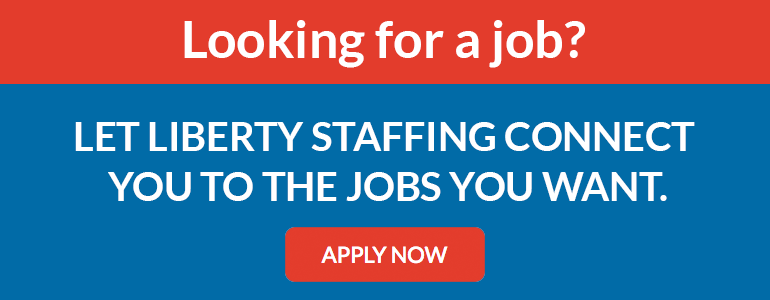 When you’re looking for a job, the waiting period is stressful. You might find yourself working hard on your applications, writing your resume, waiting to get called back, and ultimately not hearing much. After a while, the wait takes a toll on your self-esteem and you’re left wondering: what am I doing wrong?
When you’re looking for a job, the waiting period is stressful. You might find yourself working hard on your applications, writing your resume, waiting to get called back, and ultimately not hearing much. After a while, the wait takes a toll on your self-esteem and you’re left wondering: what am I doing wrong?
Every industry is different, and the expectations for skilled candidates vary depending on the company doing the hiring. That being said, there are common themes found in successful job seekers, and common mistakes, too. Here are seven things job seekers are doing wrong when they’re on the hunt.
1. Limiting Your Search
In a difficult market, even highly skilled candidates might not have the luxury of limiting the job search to only ideal companies. It’s good to have a wish list when it comes to where you want to work, but not looking beyond the “perfect company” can hurt your search in the long run.
Free agents looking for work can aim for their ideal companies, but it’s important to also consider tier two and three companies in your areas of interest. By expanding your search, you’re taking the right steps towards finding full-time employment.
2. Waiting to Hear Back
Sometimes candidates limit their searches to the ideal places they’d like to work, but it’s quite common for job seekers to limit their employment potentials without meaning to do so, too. Waiting to hear back from companies that have received your resume is one way that a job seeker can unintentionally slow down the job hunt.
Pursuing only one contact at a company also won’t set you that far ahead. Hiring managers are busy, so radio silence doesn’t necessarily mean hiring decisions are being made—you need to maximize your connections and pursue as many opportunities without slowing down for one lead no matter how promising it may be.
3. Slowing Down
Finding a job is in itself a full-time job. Even if you’re buffering your employment gap with some part-time employment, looking for a job is serious work that demands your commitment. Job seekers must continue to put in plenty of time and effort into the job search. Until you find the right arrangement, commit to the fact that you have two jobs that will take a lot of time from you.
4. Being Pessimistic
Pessimism during a job hunt is understandable: you’ve been searching and searching and putting yourself out there without any bites. That being said, job seekers have to stay optimistic and shut out any insecurities. Ignore the negativity and you’ll be on the path to employment with a renewed enthusiasm for finding a great job.
5. Limiting Your Options
Employers are becoming more and more selective about who gets a permanent full-time job. Unfortunately, many companies are profiting off job seeker uncertainty by offering tentative, part-time, or unpaid work in the form of internships, but it’s possible to find an alternative to a full-time job that still promises professional growth and resume-building while giving you the paycheque that you need. Freelance options and short-term employment can give you the boost you need to land that dream job in the end.
6. Not Building Your Online Presence
It’s easier than ever for recruiters to get a quick glance at your professional offerings by looking at the internet. One of the things job seekers do properly is keep their online profiles updated with experience, achievements, network associations, and alumni groups.
7. Not Doing Research
When job seekers are applying to their target companies, they need to do the right amount of research to prove they know what the company offers and how their skill sets offer a mutually beneficial employment arrangement. It’s imperative that applicants look at the company’s projects and related news articles, and even connect online with company members of interest. Recruiters love to see interest, intent, and serious commitment to an application.


